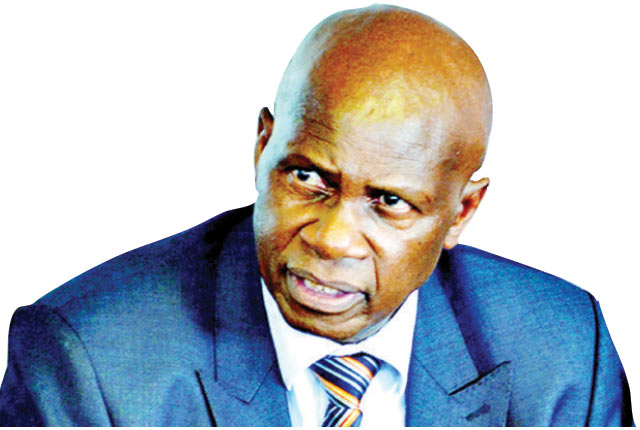Use of ICT in election campaigns

Robert Ndlovu
Yes you read that right. I am fully aware that elections are about a year away. So logically the time to start your campaign is now. This article touches on a few technologies that are known to work and others that are not as effective. Please spare me the drama of election fairness or lack thereof, this article discusses the technological side of things. In mature democracies, election campaigning is a continuous process that does not necessarily wait for the election one year window period.
Councillors and MPs who have done very little in their wards and constituencies would naturally be more interested in identifying “other” means beyond blankets and grain to up their campaigns.
The very nature of ICT makes distance trivial. So it means if you are constantly in touch with your constituency all the time, then a single customised SMS should not surprise your people. This comes in the form of bulk SMS. As long as your message can fit 160 characters then you can update, inform and or engage your constituency about your plans, actions if any or upcoming meetings.
This assumes that you already have a decent contact list on your phone. Most mobile operators do not like people who send too many messages at the same time. They claim you are congesting their networks, which is a lie. But if you can recall — how many unsolicited text messages violate your phone telling you about how to get health tips or some religious vibes?
The good news is that you can still send bulk SMS messages from the internet without having to ask for any permission from any of the mobile operators.
As long as your text messages do not violate other people’s rights, you’re good to go. There are several local and internet based companies who offer this service. The cost of an SMS last time I checked was less than five cents. So if you send 1 000 SMSs, it will cost you $5.
The availability of WhatsApp and other instant messaging tools have forced SMS prices down. It still remains the most popular texting mode. Not everyone has a smart phone with WhatsApp. Most people always have issues with data. Signing up of this service is as easy as signing up for a Gmail account. Composing and sending of messages can be done via any web browser on a laptop, desktop, tablet or smart phone.
Another feature I have found useful to responsible individuals is that of being able to change your caller ID. If you are an MP from Magwegwe, you can simply prepend the from field and all messages will be received by recipients from Magwegwe. This is important for branding. But this is open to abuse as I can send you an SMS and claim it is from Mpopoma. However, to mitigate against this, most web-based providers are very strict on what you choose as a caller ID.
You can also incorporate the two way SMS feature. This means that people can contact you using a key word and send to your number. If the key word is “Meeting” the sender will receive back an auto SMS with details of the meeting. You can choose any key word and just ensure that you have created an auto response to go with it.
This technology is more than two decades old but still very effective. Like any other technology, it can be seriously abused. It all depends on which end you do this. The issue of sending misleading caller IDs is problematic if used with ill intent but very useful if used with good ones.
Authorities have no direct control on systems that are not physically in Zimbabwe. That’s a challenge for them. But at the same time, if you want to use this to pursue some nefarious agendas then you are in the wrong business as a councillor or MP.
Social media is a platform that cannot be ignored. In Zimbabwe, the cost of data has limited maximum realisation of social media. But this will change. I mean 15 years ago, I didn’t know more than 10 people with an internet connection at home. Today, every person with a smart phone is online. Simple, effective campaign strategies can be mapped out and pushed using anything from Twitter, Facebook, WhatsApp, Instagram and others. The campaign remains the same.
ICT will not make you popular and more useful if you are well known for failure in your area. Social media is a transport medium that can enhance already existing plans and dreams. ICT will not deliver what you should have delivered but merely acts as an efficient conduit to channel your plans. Most elected officials that I know do not have a functional social media page or status. The reason is obvious.
They know that they will receive more venom than honey through those pages as they are serial failures. By joining public discussion groups set up by others, elected officials are thus able to have an idea what the average voter is talking or thinking about. This is a back door approach but it works.
Use of public Wi-Fi networks enables election teams to coordinate their plans cost effectively and from different locations. I make mention of public Wi-Fi because of the current cost of data in Zimbabwe. Phone calls can be made between different individuals and participants using encrypted and secure WhatsApp calling. Call quality is definitely higher on Wi-Fi than regular 2.5G. Unless you are on a 4G /LTE network, then you do not have to worry about call quality. These calls cannot be interfered with by anyone.
If you had a good budget then you would go for the jagular. Use voice broadcasting. Record your message, try to keep it short — 45 seconds and less. Sign up for a voice account. Upload the audio file (MP3) then send it to your intended contacts. Boom 1 000 phones will ring at the same time playing the same message. Thanks to VoIP technology.
Scientists have come up with portable radios that can take USB, memory cards and so on. Now I have seen these being used by vendors selling their wares. The idea is to record an audio file once, save in a memory card, insert it and play it over and over again. Get one of those and put your campaign in there.
I have deliberately not covered technologies for specific electoral tasks, such as boundary delimitation, voter registration, regulation of party and candidates, reaching voters, voting operations and corporate management are considered separately in this topic area.
As you are aware, the Zimbabwe Electoral Commission says we will be using BVR (Biometric Voting Registration) system to register to vote. This will form the basis of the voters roll.










Comments